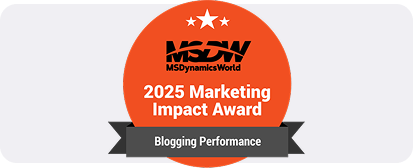Wholesale Distribution ERP System for Canada in 2025
Amid the complexity of the distribution business, Canadian businesses face immense pressure to streamline operations and manage inventory effectively. Whether you're a wholesaler in Toronto, a logistics provider in Vancouver, or a supply chain manager in Montreal, finding the right ERP for distribution is key to staying competitive.
In this article, we'll explore the top 10 distribution ERP systems of 2025, including Microsoft Dynamics 365, Oracle NetSuite, and more, designed to cater to the unique needs of Canadian distributors.
What is Distribution ERP?
Distribution ERP is specialized software designed to streamline operations for distribution businesses. Unlike traditional ERP systems, Distribution ERP software specifically targets areas like inventory management, order fulfillment, and logistics, ensuring distributors stay efficient in managing their operations.
Whether you’re a small distribution business in Canada or a wholesale distributor, the right ERP solution can be a game changer in improving both supply chain management and customer service.
Why Choose a Distribution ERP System?
A Distribution ERP system can significantly streamline operations in areas such as inventory management, order processing, and supply chain visibility. It’s especially crucial for Canadian distributors who need to comply with local regulations and manage inventory across multiple locations like Toronto, Montreal, and Vancouver.
Best 10 ERP for Distribution in Canada
As we move further into 2025, businesses in the distribution sector are increasingly relying on ERP solutions to streamline operations, optimize inventory, and improve customer satisfaction. Below, we’ve compiled a list of the top 10 distribution ERP systems leading the way this year.
Microsoft Dynamics 365 Finance and Operations

D365 Finance and Operations is a comprehensive cloud-based ERP system designed for scalability and integration. It supports complex distribution operations with modules for finance, supply chain, sales, and customer service. As one of the best ERP systems for distribution, it’s a go-to for businesses of all sizes.
Ideal For
Mid to large-sized Canadian distributors seeking deep integration with Microsoft tools and advanced analytics.
Key Features
- Real-time inventory and warehouse management
- AI-driven demand forecasting
- Integrated financials and compliance tools
- Native support for Canadian tax codes and bilingual interfaces
2. Oracle NetSuite ERP

NetSuite is a cloud-native ERP tailored for fast-growing businesses. It offers robust financials, inventory, and order management, making it ideal for multi-location distribution. The best ERP for small distribution businesses may vary, but for those growing fast, NetSuite offers the right tools.
Ideal For
Canadian distributors with international operations or complex supply chains.
Key Features
- Unified platform for finance, CRM, and e-commerce
- Real-time dashboards and reporting
- Automated tax calculations including Canadian GST/HST
- Scalable architecture for growth
Also Read: Business Central vs NetSuite
3. SAP S/4HANA
.png)
SAP S/4HANA is an enterprise-grade ERP built for large organizations. It offers real-time data processing and deep customization for distribution networks. For businesses with manufacturing and distribution needs, SAP offers integration with ERP and manufacturing.
Ideal For
Large enterprises with complex logistics and global operations.
Key Features
- Advanced analytics and machine learning
- Integrated supply chain and procurement
- Strong compliance and localization for Canadian regulations
- High-performance in-memory database
Also Read: SAP Alternative
4. Acumatica Cloud ERP

Acumatica is a flexible and affordable cloud ERP designed for small to mid-sized businesses. It offers strong distribution features with customizable modules, making it one of the best ERP systems for small distribution businesses.
Ideal For
SMBs looking for a modern, cost-effective ERP with strong support.
Key Features
- Real-time inventory tracking
- Mobile access and user-friendly interface
- Canadian localization and bilingual support
- Modular pricing based on usage
5. Epicor ERP

Epicoris built specifically for manufacturing and distribution industries. It offers deep functionality for warehouse management and supply chain optimization, making it the best ERP system for distribution in industrial and consumer goods sectors.
Ideal For
Distributors in industrial, automotive, or consumer goods sectors.
Key Features
- Advanced warehouse automation
- Integrated demand planning
- Canadian tax and compliance support
- Strong partner network in Canada
6. Infor CloudSuite Distribution

Infor CloudSuite is a specialized ERP for wholesale distribution. It combines industry-specific features with cloud flexibility, ideal for businesses focusing on wholesale.
It streamlines inventory management, order processing, and customer service with built-in analytics and automation.
Ideal For
Wholesalers and distributors needing tailored functionality.
Key Features
- Demand forecasting and replenishment
- Integrated CRM and e-commerce tools
- Canadian localization and tax handling
- Scalable cloud infrastructure
7. Odoo ERP

Odoo is an open-source ERP with a modular approach. It allows businesses to start small and expand functionality as needed, making it the best ERP for small distribution businesses looking for flexibility and affordability.
Ideal For
Startups and small distributors seeking flexibility and affordability.
Key Features
- Modular apps for inventory, sales, and accounting
- Customizable workflows
- Community and enterprise editions
- Basic support for Canadian taxes
8. Dynamics 365 Business Central

Business Central is a lighter version of Microsoft Dynamics 365, designed for small to mid-sized businesses. It offers core ERP features with easy integration into Microsoft 365, ideal for businesses already using Microsoft ERP solutions.
Ideal For
Canadian SMBs already using Microsoft products.
Key Features
- Financial management and inventory control
- Seamless integration with Outlook and Excel
- Canadian tax and payroll support
- Cloud and on-premise deployment options
9. 10X ERP

10X ERP is a modern cloud ERP focused on simplicity and speed. It is designed for distributors who want fast implementation and intuitive interfaces. The platform offers real-time visibility into inventory, sales, and financials, enabling quicker decision-making.
Ideal For
Canadian distributors looking for a modern, easy-to-use ERP with strong core features.
Key Features
- Real-time data visibility
- Fast onboarding and minimal training
- Strong inventory and accounting tools
- Cloud-native with Canadian support
10. QuickBooks Enterprise
.png)
QuickBooks Enterprise is a popular accounting solution with basic ERP capabilities. It is suitable for small distributors who need financial and inventory management, making it a great entry point for businesses looking for a basic ERP solution.
Ideal For
Canadian small businesses with limited ERP needs.
Key Features
- Inventory tracking and reorder points
- Financial reporting and tax compliance
- Familiar interface and easy setup
- Affordable pricing
Also Read: QuickBooks Alternative
What are the benefits of ERP for distribution?
Implementing an ERP system in a distribution business offers a wide range of benefits that enhance operational efficiency, customer satisfaction, and profitability. Here are the key advantages:
Centralized Data Management
ERP systems unify data from various departments such as inventory, sales, finance, and logistics. This centralization reduces data silos and ensures that everyone works with accurate, real-time information.
Improved Inventory Control
ERP solutions provide real-time visibility into stock levels, reorder points, and warehouse operations. This helps prevent overstocking or stock outs and improves demand forecasting.
Streamlined Order Processing
Automated workflows for order entry, fulfillment, and invoicing reduce manual errors and speed up the entire order-to-cash cycle. This leads to faster deliveries and improved customer satisfaction.
Enhanced Supply Chain Management
ERP systems optimize procurement, vendor management, and logistics. They help distributors track shipments, manage supplier relationships, and reduce lead times.
Better Financial Oversight
Integrated financial modules allow for accurate accounting, budgeting, and reporting. Businesses can monitor profitability, manage cash flow, and ensure compliance with Canadian tax regulations.
Scalability and Flexibility
Modern ERP platforms are scalable, allowing distribution businesses to grow without needing to overhaul their systems. They also support multi-location and multi-currency operations, which is crucial for Canadian businesses with international reach.
Regulatory Compliance
ERP systems help ensure compliance with Canadian laws, including bilingual labeling, GST/HST tax rules, and industry-specific regulations. Automated reporting simplifies audits and government filings.
Enhanced Customer Service
With integrated CRM and order tracking, distributors can provide better service through accurate delivery timelines, personalized communication, and faster issue resolution.
Real-Time Analytics and Reporting
ERP platforms offer dashboards and analytics tools that help managers make data-driven decisions. This includes sales trends, inventory turnover, and customer behavior insights.
Reduced Operational Costs
By automating routine tasks and improving process efficiency, ERP systems help reduce labor costs, minimize waste, and optimize resource utilization.
Key features of Wholesale distribution ERP in businesses
ERP systems play a crucial role in streamlining operations for distribution businesses. These businesses often deal with complex supply chains, inventory management, and customer demands, making efficiency and accuracy essential.
Here are the key features of ERP systems designed for wholesale distribution businesses:
Inventory Management
Tracks stock levels in real time across multiple warehouses and locations. Supports barcode scanning, lot tracking, and automated replenishment.
Order Management
Automates the entire order-to-cash process including sales orders, purchase orders, invoicing, and returns. Ensures accurate and timely fulfillment.
Warehouse Management
Optimizes warehouse operations with tools for picking, packing, shipping, and space utilization. Supports advanced features like wave picking and cross-docking.
Supply Chain Management
Provides visibility into the entire supply chain. Helps manage vendor relationships, procurement, logistics, and delivery schedules.
Financial Management
Integrates accounting, budgeting, and financial reporting. Supports Canadian tax codes including GST, HST, PST, and bilingual financial documentation.
Customer Relationship Management (CRM)
Tracks customer interactions, manages sales pipelines, and supports personalized service. Helps improve customer retention and satisfaction.
Business Intelligence and Reporting
Offers dashboards, KPIs, and customizable reports. Enables data-driven decision-making with real-time analytics.
Demand Forecasting
Uses historical data and AI to predict future demand. Helps optimize inventory levels and reduce carrying costs.
Multi-Location and Multi-Currency Support
Essential for Canadian distributors operating across provinces or internationally. Supports local currencies, taxes, and compliance requirements.
E-commerce Integration
Connects with online sales platforms to sync orders, inventory, and customer data. Supports omnichannel distribution strategies.
Mobile Access
Allows users to access ERP features from mobile devices. Useful for field sales, warehouse staff, and remote teams.
Compliance and Localization
Supports Canadian regulatory requirements including bilingual documentation, tax reporting, and industry-specific standards.
How to choose the right ERP for distribution?
Choosing the right ERP system for a distribution business is a critical decision that can significantly impact efficiency, scalability, and profitability. Here's a structured approach to help guide your selection:
Define Your Business Needs
Start by identifying your specific requirements:
- Inventory Management: Real-time tracking, multi-warehouse support, demand forecasting.
- Order Management: Sales order processing, returns, backorders.
- Supply Chain Visibility: Vendor management, procurement, logistics.
- Customer Relationship Management (CRM): Sales tracking, customer service.
- Financials: Invoicing, accounts payable/receivable, tax compliance.
- Reporting & Analytics: Dashboards, KPIs, custom reports.
Evaluate ERP Features for Distribution
Look for ERP systems that offer:
- Advanced inventory control
- Automated replenishment
- Barcode scanning and RFID
- EDI (Electronic Data Interchange) support
- Integrated shipping and logistics
- Mobile access for warehouse staff
Consider Scalability and Integration
- Will the ERP grow with your business?
- Can it integrate with existing systems (e.g., eCommerce platforms, CRM, accounting software)?
- Does it support cloud deployment for remote access?
Assess Vendor Reputation and Support
- Research vendor reliability, customer reviews, and industry experience.
- Check for ongoing support, training, and implementation assistance.
- Ask about update frequency and customization options.
Budget and ROI
- Consider total cost of ownership: licensing, implementation, training, maintenance.
- Estimate ROI based on efficiency gains, error reduction, and improved decision-making.
Request Demos and Trials
- Test usability, interface, and workflow alignment.
- Involve key stakeholders (warehouse managers, finance team, sales) in the evaluation.
What are the limitations of Distribution ERP?
ERP systems offer significant advantages for distribution businesses, but they also come with certain limitations that organizations should consider before implementation. Here are some key drawbacks:
Limitations of ERP for Distribution Businesses
High Implementation Costs
ERP systems can be expensive to purchase, customize, and deploy. Costs include software licensing, hardware upgrades, consulting fees, and training expenses.
Complex Customization Needs
Distribution businesses often have unique workflows and requirements. Customizing ERP to fit these needs can be time-consuming and costly and may require ongoing support.
Lengthy Deployment Time
Implementing an ERP system can take several months or even years, depending on the size and complexity of the business. This can disrupt operations and delay ROI.
Resistance to Change
Employees may resist adopting new systems, especially if they are accustomed to legacy tools. This can hinder user adoption and reduce the effectiveness of the ERP.
Data Migration Challenges
Transferring data from old systems to the new ERP can be risky and complex. Poor data migration can lead to inaccuracies and operational disruptions.
Limited Flexibility for Small Distributors
Some ERP systems are designed for large enterprises and may not be flexible or cost-effective for smaller distribution businesses.
Ongoing Maintenance and Upgrades
ERP systems require regular updates and maintenance, which can be resource-intensive and may introduce new bugs or compatibility issues.
Integration Issues
Integrating ERP with third-party logistics, e-commerce platforms, or specialized tools may require additional development and can pose compatibility challenges.
Ready to Streamline Your Distribution Operations with Microsoft Dynamics 365?
At Dynamics Square Canada, we understand the complexities and challenges of managing a modern distribution business. Whether you're dealing with fluctuating demand, supply chain inefficiencies, or fragmented systems, Microsoft Dynamics 365 ERP offers a unified, intelligent solution built to adapt and scale with your business.
Let’s help you:
- Gain real-time visibility into your inventory and supply chain
- Automate key distribution workflows and reduce manual errors
- Optimize order processing, fulfillment, and customer service
- Make smarter, faster decisions with built-in AI and analytics
As a trusted Microsoft Dynamics Partner in Canada, Dynamics Square brings deep industry expertise, local support, and tailored implementation strategies to ensure a smooth transition and long-term success.
Schedule Your Free Consultation Today
Discover how Dynamics 365 can transform your distribution operations. Our experts are here to assess your needs and show you what’s possible.
If you need any help, don't hesitate to reach out to us. You can give us a call at
+1 289 807 0740 or send us an email at info@dynamicssquare.ca.
People Also Ask:
1. What is an ERP system in distribution?
An ERP system in distribution helps manage and integrate core business processes such as inventory, order management, procurement, accounting, and customer relationship management.
2. What is the best software for distributors?
The best software for distributors depends on the size, industry, and specific needs of the business. Popular options include:
- Microsoft Dynamics 365 – Scalable and integrates well with other Microsoft tools.
- NetSuite – Cloud-based, ideal for growing distributors.
- SAP Business One – Great for small to mid-sized companies.
- Acumatica – Flexible and user-friendly for mid-sized distributors.
- Infor CloudSuite Distribution – Tailored for wholesale distribution.
3. What is the best ERP for supply chain management?
Top ERP systems for supply chain management include:
- SAP S/4HANA – Comprehensive and powerful for global supply chains.
- Oracle Cloud SCM – Advanced analytics and automation.
- Microsoft Dynamics 365 Supply Chain Management – Strong integration and flexibility.
- Infor SCM – Industry-specific solutions with deep functionality.
Also Read: Supply Chain Management SCM Software
4. What is the most widely used ERP?
Microsoft Dynamics is the most widely used ERP system globally, especially among large enterprises. Other widely adopted systems include SAP, Oracle, and NetSuite.
5. What is ERP?
ERP is a type of software that integrates and manages core business processes in real time. It centralizes data from departments like finance, HR, manufacturing, and supply chain, enabling better coordination, efficiency, and decision-making.
6. What is the best distribution model?
The best distribution model depends on the product, market, and customer needs. Common models include:
- Direct Distribution – Selling directly to customers (e.g., e-commerce).
- Indirect Distribution – Using intermediaries like wholesalers or retailers.
- Drop Shipping – Suppliers ship directly to customers on behalf of the distributor.
- Hybrid Models – Combining direct and indirect approaches.
For many businesses, a hybrid model offers flexibility and scalability.
.jpg)


